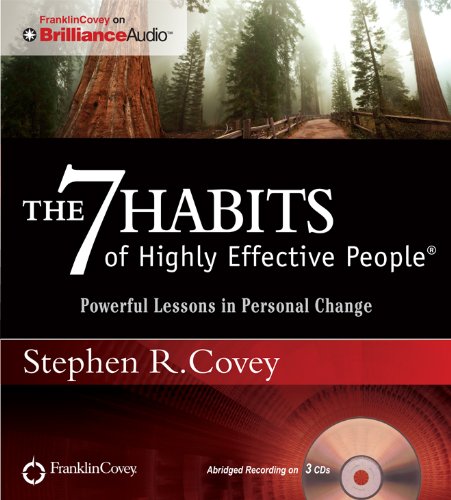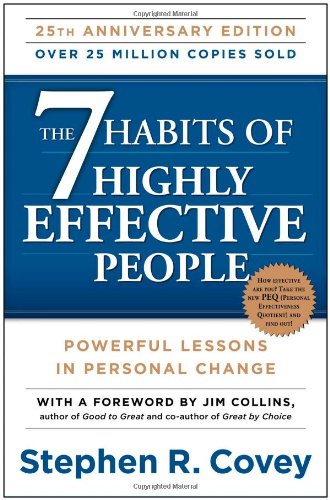
THE 7 HABITS OF HIGHLY EFFECTIVE PEOPLE is recognized as one of the most influential audio-books ever recorded. In this seminal work, Stephen R. Covey presents a holistic, integrated, principle-centred approach for solving personal and professional problems. With penetrating insights and pointed anecdotes, Covey reveals a step-by-step pathway for living with fairness, integrity, honesty and human dignity – principles that give us the security to adapt to change, and the wisdom and power to take advantage of the opportunities that change creates. The 7 Habits have become so famous because they work. From Habit 1: Be Proactive and Habit 2: Begin with the End in Mind, millions of people have worked their way through the 7 and found in them a key to transforming their lives. Translated into thirty-four languages THE 7 HABITS OF HIGHLY EFFECTIVE PEOPLE has been the key to the success of legions of business leaders and individuals the world over.The 7 Habits of Highly Effective People: Powerful Lessons in Personal Change was a groundbreaker when it was first published in 1990, and it continues to be a business bestseller with more than 10 million copies sold. Stephen Covey, an internationally respected leadership authority, realizes that true success encompasses a balance of personal and professional effectiveness, so this book is a manual for performing better in both arenas. His anecdotes are as frequently from family situations as from business challenges.
Before you can adopt the seven habits, you’ll need to accomplish what Covey calls a “paradigm shift”–a change in perception and interpretation of how the world works. Covey takes you through this change, which affects how you perceive and act regarding productivity, time management, positive thinking, developing your “proactive muscles” (acting with initiative rather than reacting), and much more.
This isn’t a quick-tips-start-tomorrow kind of book. The concepts are sometimes intricate, and you’ll want to study this book, not skim it. When you finish, you’ll probably have Post-it notes or hand-written annotations in every chapter, and you’ll feel like you’ve taken a powerful seminar by Covey. –Joan Price



